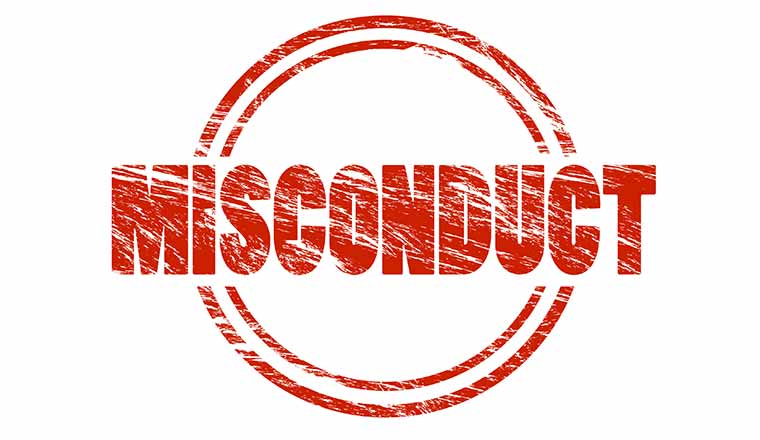26 Examples of Gross Misconduct
Gross misconduct at work is behavior so grave it fundamentally breaches the contract between an employee and their employer. It can result in severe consequences, including instant dismissal. This article provides an in-depth look into examples of gross misconduct, their repercussions, and how to handle such situations.
Defining Gross Misconduct
Gross misconduct is a severe workplace violation that can lead to immediate termination without notice or severance pay. It generally refers to serious actions that go against workplace policies and ethical conduct.

Examples of Gross Misconduct
Understanding what constitutes gross misconduct is crucial for both employees and employers. Here are some notable examples:
1. Theft or Fraud
Stealing money or property from the company, coworkers, or clients, or engaging in fraudulent activities.
2. Harassment or Bullying
Engaging in verbal, physical, or online harassment or bullying against coworkers or clients.
3. Discrimination
Treating colleagues, clients, or customers unfairly based on their race, gender, religion, age, sexual orientation, or any other protected characteristic.
4. Sexual Harassment
Engaging in unwelcome sexual advances, comments, or conduct.
5. Intoxication at Work
Coming to work under the influence of drugs or alcohol, impairing one’s ability to perform job duties safely and effectively.
6. Breach of Confidentiality
Sharing confidential or sensitive information about the company, clients, or coworkers without proper authorization.
7. Physical Violence or Threats
Engaging in physical violence, threatening behavior, or making violent threats against coworkers or clients.
8. Serious Negligence
Failing to perform job duties to the degree that it results in serious consequences, such as significant financial loss or safety risks.
9. Falsifying Records
Changing or making up data, reports, or any official records dishonestly.
10. Serious Insubordination
Refusing to follow direct orders or showing open disrespect to superiors.
11. Misuse of Company Property
Using company resources for personal gain or without proper authorization.
12. Bringing the Company into Serious Disrepute
Engaging in activities that negatively affect the company’s reputation, such as scandalous public behavior or making damaging public statements about the company.
13. Serious Breach of Health and Safety Rules
Violating important safety regulations that put oneself or others in danger.
14. Sleeping on the Job
Sleeping during work hours, especially in roles where vigilance is crucial for safety or job performance.
15. Cyber Bullying
Using digital communication tools to harass, intimidate, or otherwise harm coworkers.
16. Abuse of Social Media
Posting inappropriate or harmful content on social media that affects coworkers or the company’s reputation.
17. Unexcused Absences
Failing to show up for work without a valid reason or not following the proper protocol for taking time off.
18. Serious Dishonesty
Lying about significant matters, such as one’s qualifications, work experience, or work completed.
19. Deliberate Damage to Company Property
Intentionally causing harm to equipment, materials, or any other company property.
20. Illegally Downloading Content on Company Devices
Downloading illegal content or using pirated software on company devices.
21. Fraudulent Expense Claims
Claiming personal expenses as business costs or inflating expense reports for personal gain.
22. Misrepresentation of Company to Clients or Public
Deliberately providing false or misleading information about the company to clients, customers, or the public.
23. Spying for Competitors
Sharing proprietary or confidential information with rival companies.
24. Hacking or Unauthorized Access
Accessing or attempting to access company systems or data without authorization, or altering systems without permission.
25. Possession of Illegal Substances
Bringing or using illegal drugs in the workplace.
26. Sabotage
Deliberately setting out to disrupt or harm the company’s operations.
Consequences of Gross Misconduct
Gross misconduct can lead to serious consequences, including instant dismissal. However, employers should carry out a thorough investigation before taking such drastic measures.
People Also Ask
What Should I Do If I Witness Gross Misconduct?
If you witness gross misconduct, it’s crucial to report it to your immediate supervisor or human resources department. The company should then investigate the incident and take appropriate action.
Can I Appeal a Dismissal for Gross Misconduct?
Yes, you typically have the right to appeal a dismissal for gross misconduct. The process for doing so should be outlined in your employee handbook or contract.
Can Gross Misconduct Be Expunged from My Employment Record?
Depending on local employment laws, it may be possible to have gross misconduct expunged from your employment record. Consult with an employment lawyer for advice.
Conclusion
Understanding what constitutes gross misconduct and its implications is key for maintaining a respectful and lawful workplace. Both employers and employees have a role to play in preventing such incidents and handling them appropriately when they occur.